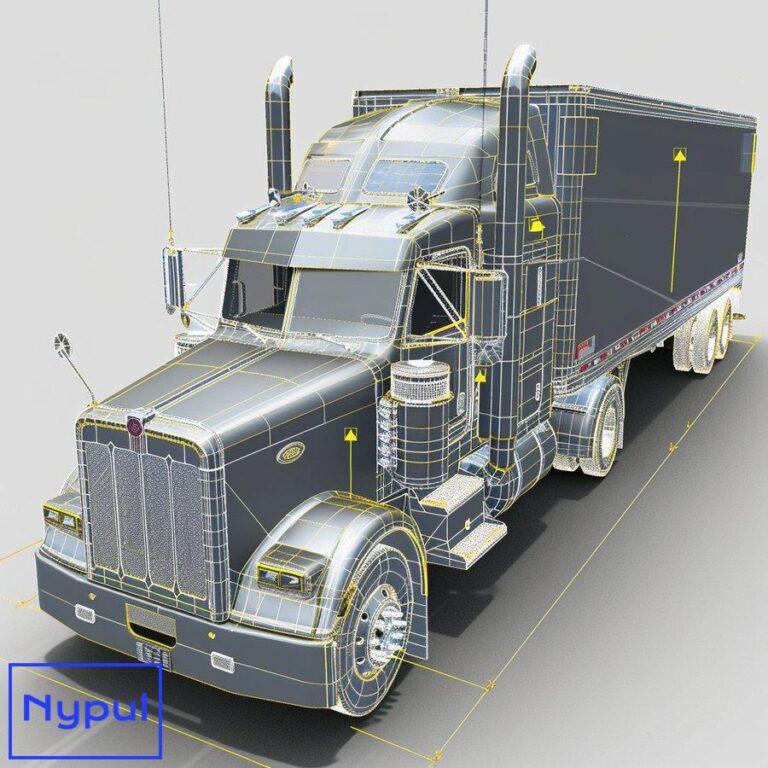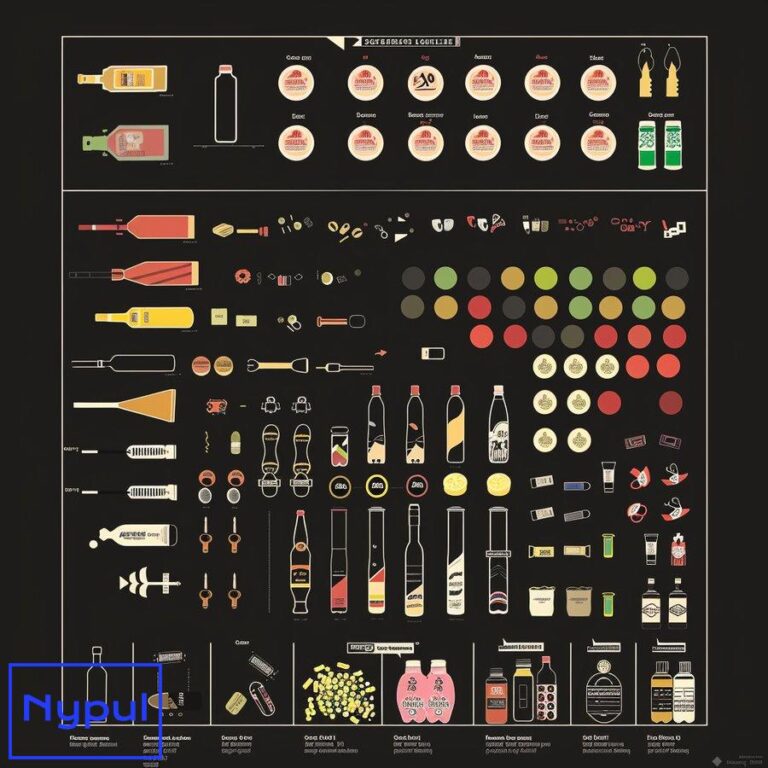What Is the Importance of Communication in Trucking
Why is communication crucial in the trucking industry?
Effective communication is the lifeblood of the trucking industry, enabling seamless coordination, timely information exchange, and strong relationships between various stakeholders. In this section, we’ll explore the fundamental reasons why communication is so vital for the success and sustainability of trucking operations.

At its core, trucking is a people-centric business that relies heavily on human interactions and information sharing. Truck drivers, dispatchers, fleet managers, customers, and regulatory authorities must constantly communicate to ensure the smooth flow of goods and services. Effective communication helps to minimize misunderstandings, reduce costly errors, and foster a collaborative work environment.
Moreover, the trucking industry operates in a highly dynamic and time-sensitive environment, where delays and disruptions can have significant financial and reputational consequences. Effective communication enables stakeholders to quickly adapt to changing circumstances, share critical information, and make informed decisions that mitigate risks and maximize opportunities.
In addition to its operational importance, effective communication is also crucial for compliance and regulatory adherence in the trucking industry. Drivers must communicate with dispatchers and fleet managers to ensure that they comply with hours-of-service regulations, maintain proper documentation, and report any incidents or accidents.
Finally, effective communication is essential for building and maintaining strong relationships with customers, which is a key driver of success in the trucking industry. By communicating proactively, transparently, and empathetically, trucking companies can build trust, resolve issues quickly, and foster long-term partnerships with their clients.
How does effective communication enhance safety in trucking operations?
Safety is the top priority in the trucking industry, and effective communication plays a crucial role in ensuring the well-being of drivers, other road users, and the general public. In this section, we’ll examine how communication enhances safety in trucking operations.
One of the primary ways that effective communication improves safety is by enabling real-time information sharing between drivers and dispatchers. When drivers can communicate quickly and clearly with their dispatchers, they can report hazardous road conditions, mechanical issues, or other safety concerns, allowing for timely intervention and mitigation.
Moreover, effective communication is essential for ensuring that drivers are aware of and adhere to safety protocols and procedures. By regularly communicating safety guidelines, providing training, and encouraging open dialogue about safety concerns, trucking companies can foster a strong safety culture and empower their drivers to make safe decisions on the road.
In addition to internal communication, effective communication with external stakeholders, such as law enforcement and emergency responders, is also crucial for enhancing safety in trucking operations. By maintaining clear and open lines of communication with these entities, trucking companies can ensure that any incidents or accidents are handled promptly and effectively, minimizing the risk of further harm.
Finally, effective communication is essential for conducting thorough investigations and implementing corrective actions in the event of an incident or accident. By gathering and analyzing data from various sources, including driver reports, vehicle telematics, and eyewitness accounts, trucking companies can identify root causes and implement targeted interventions to prevent similar incidents from occurring in the future.
What role does communication play in improving operational efficiency?

Operational efficiency is a critical factor in the success of any trucking company, and effective communication is a key enabler of this efficiency. In this section, we’ll explore how communication can help improve operational efficiency in the trucking industry.
One of the primary ways that effective communication enhances operational efficiency is by enabling better planning and coordination. When dispatchers, fleet managers, and drivers can communicate clearly and effectively, they can optimize routes, minimize empty miles, and ensure that loads are delivered on time and in full.
Moreover, effective communication helps to reduce costly errors and delays by ensuring that all stakeholders have access to accurate and up-to-date information. By communicating proactively about changes in schedules, routes, or customer requirements, trucking companies can minimize the risk of miscommunication and ensure that their operations run smoothly.
In addition to improving planning and coordination, effective communication also plays a crucial role in enhancing the efficiency of maintenance and repair processes. By communicating regularly with mechanics and technicians, fleet managers can ensure that vehicles are serviced and repaired in a timely manner, reducing downtime and maximizing asset utilization.
Finally, effective communication is essential for fostering a culture of continuous improvement in the trucking industry. By encouraging open dialogue, sharing best practices, and providing feedback, trucking companies can identify areas for improvement, implement targeted interventions, and measure the impact of these interventions on operational efficiency.
How does communication support compliance and regulatory adherence in trucking?
Compliance and regulatory adherence are critical concerns for trucking companies, and effective communication is essential for ensuring that these requirements are met. In this section, we’ll examine how communication supports compliance and regulatory adherence in the trucking industry.
One of the primary ways that effective communication supports compliance is by enabling drivers to report issues and concerns in a timely manner. When drivers can communicate openly and honestly with dispatchers and fleet managers, they can flag potential compliance issues, such as hours-of-service violations or vehicle maintenance problems, allowing for prompt corrective action.

Moreover, effective communication is essential for ensuring that drivers are aware of and adhere to relevant regulations and guidelines. By providing clear and concise training materials, conducting regular safety meetings, and encouraging open dialogue about compliance issues, trucking companies can help their drivers stay informed and compliant.
In addition to internal communication, effective communication with regulatory authorities is also crucial for maintaining compliance. By maintaining open lines of communication with agencies such as the Federal Motor Carrier Safety Administration (FMCSA) and the Department of Transportation (DOT), trucking companies can stay informed about changes in regulations, participate in industry dialogues, and demonstrate their commitment to compliance.
Finally, effective communication is essential for maintaining accurate records and documentation, which is a key requirement for compliance in the trucking industry. By communicating clearly and consistently about record-keeping procedures, providing training and support to drivers and administrative staff, and conducting regular audits, trucking companies can ensure that their records are complete, accurate, and up-to-date.
What impact does communication have on customer satisfaction in the trucking industry?
Customer satisfaction is a critical factor in the success of any trucking company, and effective communication is a key driver of this satisfaction. In this section, we’ll explore how communication can impact customer satisfaction in the trucking industry.
One of the primary ways that effective communication enhances customer satisfaction is by enabling proactive and transparent information sharing. When trucking companies communicate regularly with their customers about shipment status, delivery timelines, and any potential issues or delays, they can build trust, manage expectations, and demonstrate their commitment to service excellence.
Moreover, effective communication helps to resolve customer issues and concerns quickly and effectively. By maintaining open lines of communication with customers, trucking companies can respond promptly to inquiries, address complaints, and work collaboratively to find solutions that meet the needs of both parties.
In addition to enhancing communication with customers, effective communication within the trucking company itself is also crucial for delivering a high level of customer service. When dispatchers, fleet managers, and drivers communicate clearly and effectively with each other, they can ensure that customer requirements are accurately communicated, shipments are handled efficiently, and any issues or concerns are addressed proactively.
Finally, effective communication is essential for building long-term relationships with customers. By communicating consistently, transparently, and empathetically, trucking companies can demonstrate their commitment to their customers’ success, foster trust and loyalty, and position themselves as strategic partners in their customers’ supply chain.
How does communication contribute to driver retention and team building?
Driver retention and team building are critical challenges in the trucking industry, and effective communication is a key factor in addressing these challenges. In this section, we’ll examine how communication contributes to driver retention and team building in the trucking industry.
One of the primary ways that effective communication enhances driver retention is by creating a positive and supportive work environment. When drivers feel that their voices are heard, their concerns are addressed, and their contributions are valued, they are more likely to feel engaged, motivated, and committed to their work.

Moreover, effective communication helps to build trust and rapport between drivers and their managers. By communicating regularly, providing feedback and recognition, and demonstrating a genuine interest in their drivers’ well-being, trucking companies can create a culture of trust and respect that fosters loyalty and commitment.
In addition to enhancing driver retention, effective communication is also crucial for building strong teams within the trucking industry. When drivers, dispatchers, and fleet managers communicate clearly and effectively with each other, they can collaborate more effectively, share knowledge and best practices, and support each other in achieving common goals.
Finally, effective communication is essential for providing drivers with the training and support they need to succeed in their roles. By communicating clearly about training requirements, providing ongoing coaching and mentoring, and encouraging drivers to seek support when needed, trucking companies can help their drivers develop the skills and confidence they need to thrive in their careers.
What technological advancements are shaping communication in trucking?
The trucking industry is rapidly evolving, and technological advancements are playing a significant role in shaping communication within the industry. In this section, we’ll explore some of the key technological advancements that are transforming communication in trucking.
One of the most significant technological advancements in trucking communication is the rise of mobile apps and platforms. These tools enable real-time communication between drivers, dispatchers, and fleet managers, allowing for quick updates on shipment status, route changes, and any issues or concerns.
Moreover, advancements in telematics and vehicle tracking technologies are enabling more comprehensive and data-driven communication in the trucking industry. By collecting and analyzing data from vehicle sensors and GPS systems, trucking companies can gain valuable insights into driver behavior, vehicle performance, and operational efficiency, and use this information to inform their communication strategies.
In addition to mobile apps and telematics, the trucking industry is also embracing the use of artificial intelligence (AI) and machine learning to enhance communication and decision-making. AI-powered tools can help to analyze large volumes of data, identify patterns and trends, and provide real-time recommendations to help trucking companies communicate more effectively and make more informed decisions.
Finally, the COVID-19 pandemic has accelerated the adoption of video conferencing and remote collaboration tools in the trucking industry. These technologies have enabled trucking companies to maintain effective communication with their drivers, customers, and partners even in the face of social distancing and travel restrictions, demonstrating their value and versatility in the industry.
How can trucking companies overcome common communication challenges?
Despite the importance of communication in the trucking industry, there are several common challenges that trucking companies face when it comes to effective communication. In this section, we’ll explore some strategies for overcoming these challenges.
One of the primary challenges in trucking communication is the geographic dispersion of drivers and the lack of face-to-face interaction. To overcome this challenge, trucking companies can leverage technology to enable more frequent and effective communication, such as using mobile apps, video conferencing, and social media platforms.
Another common challenge is the diversity of communication styles and preferences among drivers and other stakeholders. To address this challenge, trucking companies can adopt a multi-channel communication strategy that offers a range of communication options, such as phone, email, text messaging, and video conferencing, to accommodate different preferences and needs.
In addition to technological and logistical challenges, trucking companies also face cultural and organizational barriers to effective communication. To overcome these barriers, trucking companies can invest in communication training and development for their employees, foster a culture of open dialogue and feedback, and ensure that communication is a key priority at all levels of the organization.
Finally, trucking companies can also overcome communication challenges by focusing on continuous improvement and learning. By regularly evaluating their communication strategies, identifying areas for improvement, and implementing targeted interventions, trucking companies can continuously enhance the effectiveness of their communication and drive better outcomes for their business.





